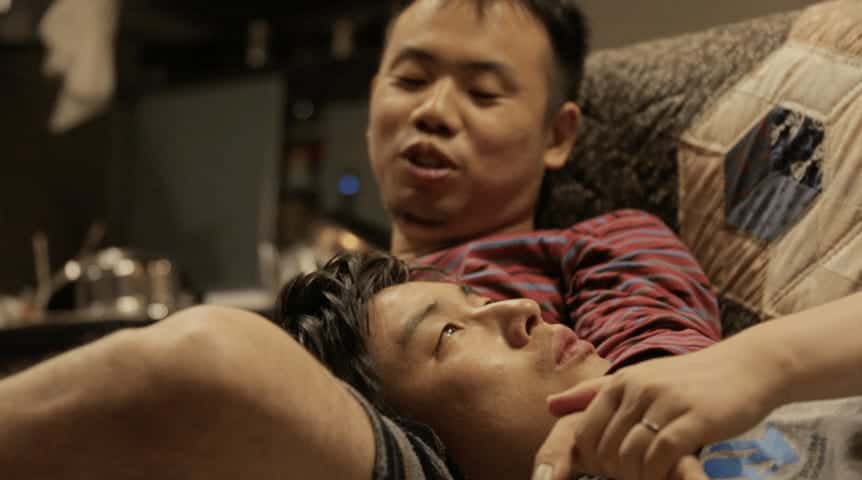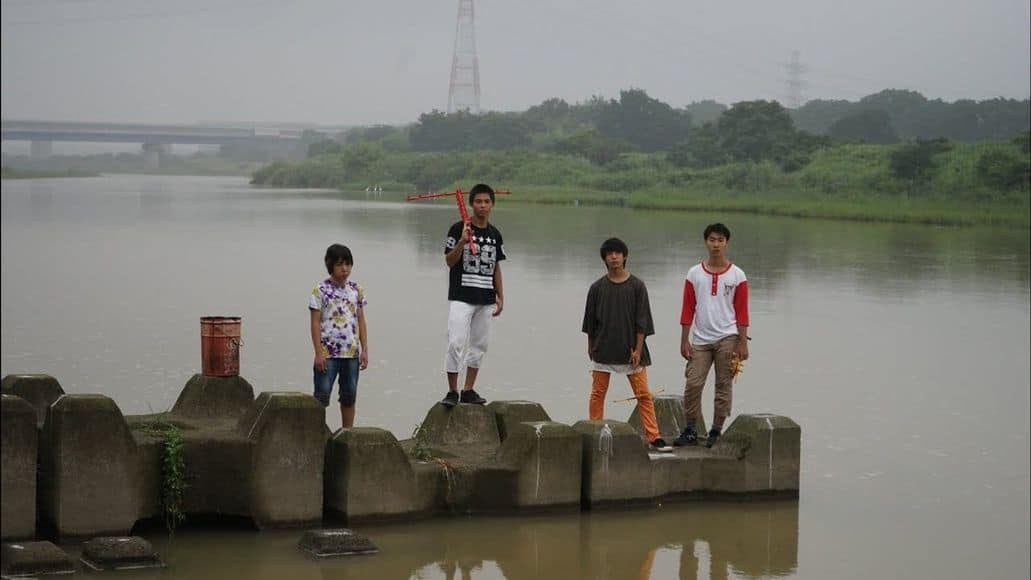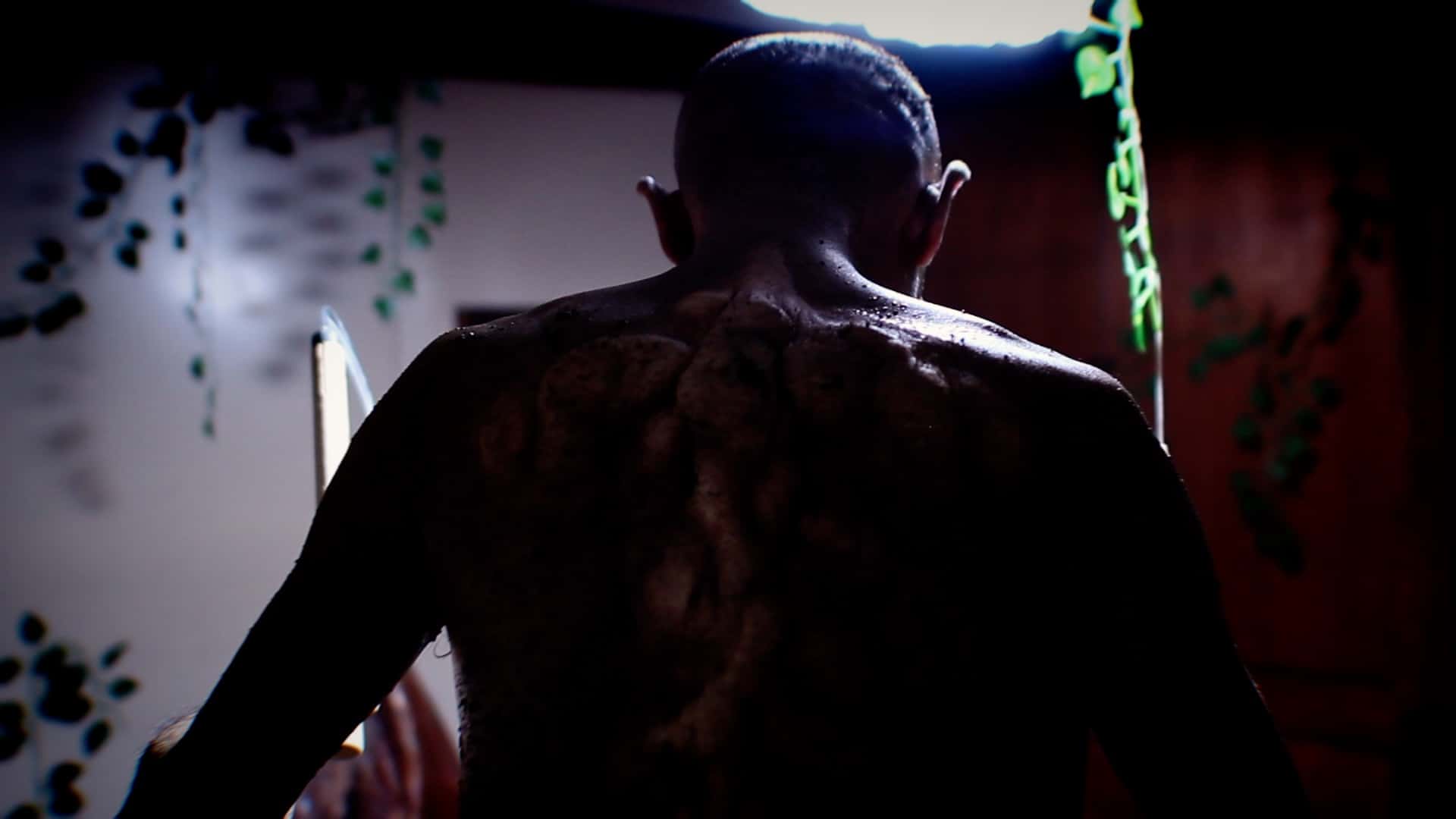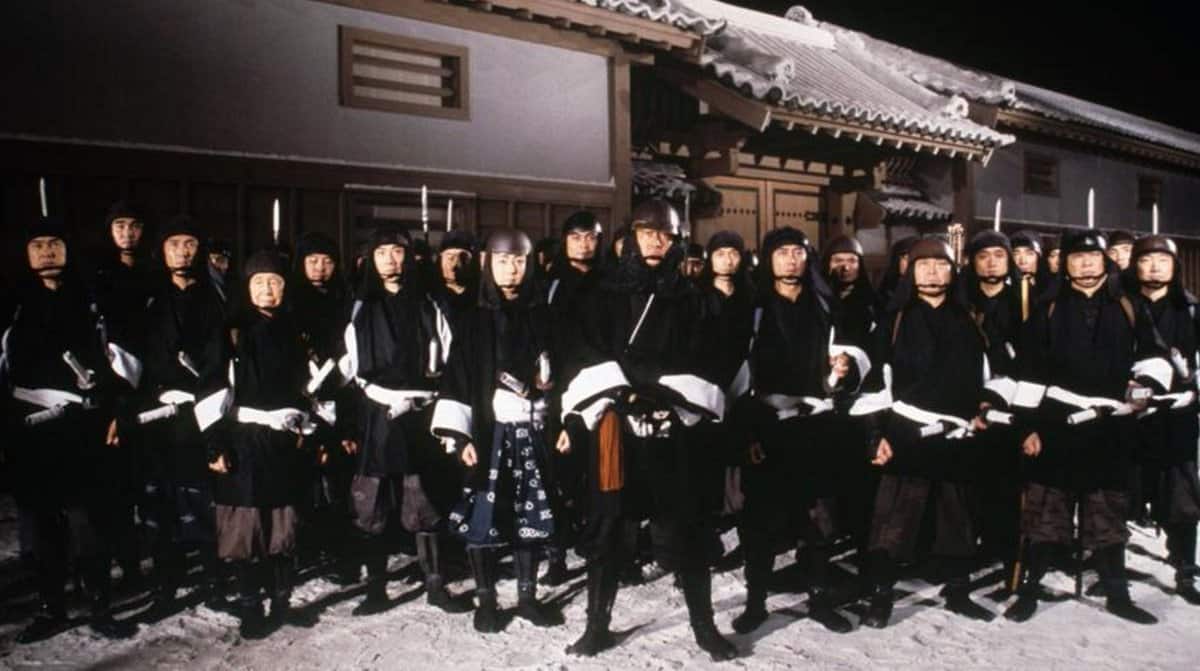“We are the minority.”
To many, Japan is still a country of vast variety and diversity. Given the influx of popular culture, a Western view of Japan is at times influenced by mixture of cultural stereotypes and lack of knowledge. However, culture has always been a somewhat ambiguous key when it comes to give an image of the country itself, its politics and its society. Even today, from music to art and film, Japanese culture, even mainstream, gives a decidedly different image.
Of Love and Law is screening at Japan Cuts 2018

Nevertheless, looking at the facts and figures about the Japanese populace draws an interesting, quite telling picture. With 98,5 % of its population coming from Japanese descent, being an outsider in a society defined by largely conformist and conservative notions often equals loneliness, depression and in some cases, even suicide. According to reviewer Sarah ward “failing to adhere to the norm” is considered an offense in society and can even be persecuted by law.
In the end, it is down to projects such as “Of Love & Law” among others to shed some light on a side of Japan even the Japanese themselves often do not see very often. Director Hikaru Toda and producer Elhum Shakerifar state on the Kickstarter page of the film it should tell “the hidden stories of people who are hidden and made invisible by Japanese society and its laws”. The foundation for the project was the encounter with Osaka-based lawyers Kazuyuki Minami (‘Kazu') and Masafumi Yoshida (‘Fumi') who often represent clients silenced or threatened by Japanese obscenity laws or rigid bureaucratic structures. Being a couple themselves, they both have their own story to tell about being shunned within society, being bullied and looked down upon.

Apart from their personal stories, their coming-out, their career as lawyers and their relationship, the documentary focuses on three cases of Kazu and Fumi. In the first one, they represent Japanese artist Rokudenashiko whose vagina-art has been accused of violating the obscenity laws. Secondly, a teacher sues the school district of Osaka after having been fired, because she did not get up while the national anthem was played at a school gathering. At last, they deal with the case of a young woman who is one of the over 10,000 undocumented people in Japan who have trouble receiving equal chances for health care, employment, and in general being a member of society.
Both Fumi and Kazu, use the phrase of “reading the air”, derived from a Japanese saying, to define the difficulty of adapting within their home country's society. Coming into a room of strangers, it is expected to “read” the atmosphere of the people and to adapt accordingly without having to ask what is appropriate or not. The fact society has chosen to dictate a certain kind of behavior, a certain look and sexuality, this development has resulted in a strikingly schizophrenic society. In the end, it is this level of insecurity which leads to a fixed image concerning many issues, and logically, the expulsion of those not complying to the standard defined with society and its laws.
As a result, “Of Love & Law”, as the title already suggests, aims to highlight this constant ambivalence. In one scene set in the apartment of the two lawyers, one of them is preparing dinner while his lover watches television whose broadcast of a talk show displays the vast gap between these two worlds. On the one hand, we have the gay lovers, happily married, within their daily routine, and on the other hand, mainstream society defining heterosexuality and male superiority as the norm. Happiness, freedom and independence belong to those ready to adapt, and those unwilling to do so are constantly reminded of their inadequacy in the eyes of society.

Interestingly, the choice of cases for the documentary in comparison is not the most challenging part of the film. Eventually, it is the relationship of Fumi and Kazu, as well as their display of emotions, of weakness and humor which represents the most important part of the film. As a LGBTQ demonstration parades the streets of Osaka, the heavy police presence and a pedestrian's outcry to “stop them”, the level of fear, discomfort and inability to accept other concepts of happiness outside the norm is stressed in the very first moments of the film. During the course of the film, Fumi's and Jazu's passion for their work and commitment to each other make the most convincing case for a more tolerant and accepting view on these other concepts.
Visually, “Of Love & Law” mimics this constant change between the private moments of the two lawyers and their work, two aspects which sometime intersect. Jason Brooks' camera captures these moments, their authenticity and immediacy, exposing the hidden truth behind the cases, and emphasizing the love of the two central figures for each other. Edited by Takeshi Hata, sometimes with the support of animated segments by Rokudenashiko, “Of Love & Law” is above all an appeal to speak up, to delve deeper into an often contradicting society clinging to outdated laws and norms.
“Of Love & Law” is a courageous film about hypocrisy and social pressure within Japan's populace. With two interesting and likable central figures and a fitting visual concept the movie turns into a committed appeal for individuality and free speech. And above all, with the love of Fumi and Jazu for each other, their tenderness and passion, one begins to question a society denying that this kind of happiness is even possible. But perhaps this just proves how one receives the full picture of a society when looking at how it treats its minorities.
Sources:
1) https://www.kickstarter.com/projects/2024626146/of-love-and-law-a-doc-about-japans-first-lgbt-law, last accessed on: 07/12/2018
2) Ward, Sarah (2018) ‘Of Love and Law': Tokyo Review
https://www.screendaily.com/reviews/of-love-and-law-tokyo-review/5123984.article, last accessed on: 07/12/2018
3) Kerr. Elizabeth (2018) ‘Of Love and Law': Film Review
https://www.hollywoodreporter.com/review/love-law-film-review-filmart-2018-1094818, last accessed on: 07/12/2018
4) “Of Love and Law” Q&A: Japan Through the Lens of Gay Lawyers
http://2017.tiff-jp.net/news/en/?p=14011, last accessed on: 07/12/2018















